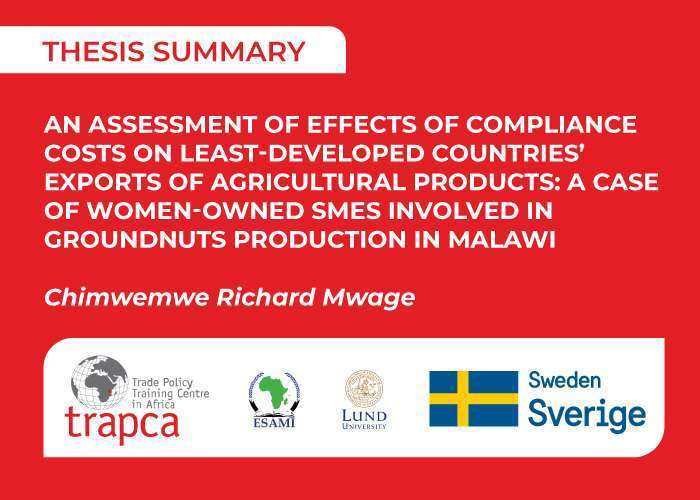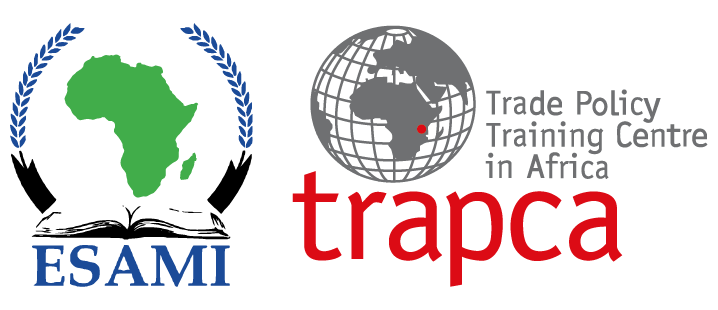

Agriculture plays a vital role in the development prospects of many least-developed countries. Many of these countries’ export earnings are largely related to the export performance of their agricultural sector, Malawi inclusive. However, success in agriculture trade is dependent of compliance with principles and obligations contained in the World Trade Organization (WTO) SPS Agreement. As such ensuring compliance with SPS measures is therefore crucial, as failure to do so can undermine trade and lead to significant commercial losses. The main aim of the study was to assess the effects of compliance costs on least-developed countries’ exports of agricultural products. In order to achieve this, a case of women-owned SMEs involved in groundnuts production in Malawi was used. A case study analysis design was used that encompassed representatives from women-owned SMEs (30) involved in groundnuts production in Malawi, 5 NASFAM officials and 5 government officials from Ministry of Agriculture, Irrigation and Water Development. The findings indicate that SPS measures or requirements are indeed the number one impediment to the export of groundnuts from Malawi to the EU. Therefore, this has really affected the women-owned SMEs as they have lost export opportunities to developed markets especially the EU. This is in line with earlier studies which indicated that while many middle and high-income countries have the capacity to comply with SPS measures, many least-developed countries fail to do so. In order to address the SPS related challenges faced by groundnuts exporters in Malawi, the study recommends that the Government of Malawi should facilitate offering of both short-term and long-term skills trainings for groundnuts exporters and also need provide the exporters with more compliance resources to enable them to comply with international standards. As such, it is clear that more work needs to be done by the least-developed countries themselves as well as their developed partners to help these women-owned SMEs to meet compliance costs related to SPS measures.
Click here to read more.
Trapca House
Esami Road;
P.O Box 3030,
Arusha,Tanzania
+255 27 297 0077 / +255 737 063 640
info@trapca.org / admissions@trapca.org
Mon – Fri 8:00 A.M. – 5:00 P.M.
